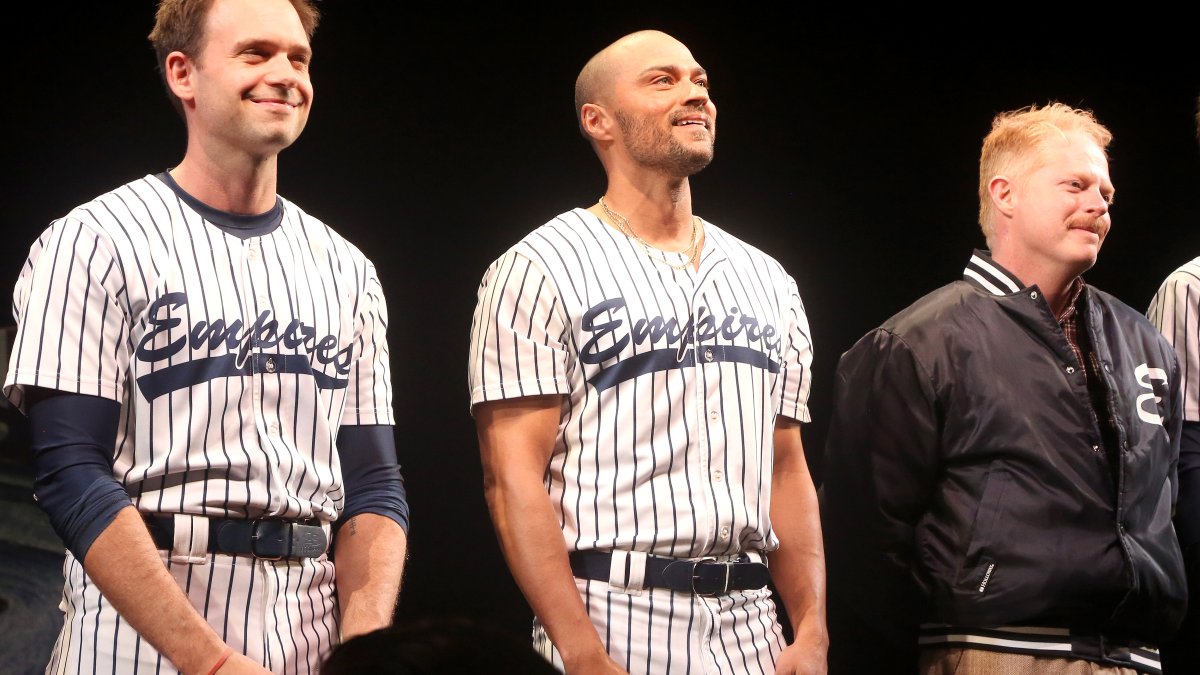Talk about a revival.
Richard Greenberg’s play about baseball and social acceptance, “Take Me Out,” originally debuting in 2002, has returned to Broadway after 20 years in the dark.
What is the likelihood that a theatrical drama would continue to be relevant two decades later after its original debut, and maybe even more so?
Greenberg’s play, directed by Scott Ellis, is more than just a description of America’s most popular pastime. The play’s themes include baseball, to LGBTQ+ inclusion and exclusion, to the power of friendship.
What is the subject matter of “Take Me Out” and why is it relevant to society today?
The play goes beyond baseball to shine light on some of the stigmas associated with baseball and other professional sports.
Very few athletes in major professional sports publicly identify as LGBTQ+ to this day. Last year, Carl Nassib became the first active NFL player to announce that he’s gay, joining a relatively short list of male professional athletes who have come out, most after their retirement. Nassib, a defensive lineman for the Las Vegas Raiders, had the league’s top-selling jersey the following week and was showered with support from the league, team and players. He played in 13 games in the 2021 season and was released on March 17, 2022.
While Nassib coming out was a seminal moment for men’s team sports, there is still a major milestone that is yet to take place: a widely recognizable, superstar athlete identifying as part of the LGBTQ+ community. “Take Me Out” explores what that scenario could potentially look like.
“Take Me Out” tells the story of a professional baseball team, The New York Empires, and their star player, Darren Lemming. “Coming off of their second World Series championship and on pace for a third, the Empires are taken by surprise when Darren, the best player in baseball, comes out as gay,” said cast member Eduardo Ramos, who plays baseball player Rodriguez. “This action is motivated by his best friend on an opposing team, who tells Darren to live his truth and ‘make your whole self known.’ Later, his friend disowns him for it, and the plot takes off into the unknown as Darren navigates a world where people and his team view him beyond his superstardom.”
“There are no openly gay superstars in professional male sports. ‘Take Me Out’ presents this idea to its audiences,” Ramos said. “Darren’s choice to live his truth sparks a firestorm of homophobia and racism, along with an examination of masculinity in the locker room.”
Why did Director Scott Ellis and the rest of the TMO crew decide to revitalize the 2002 play two decades later?
“Take Me Out” is a story that made sense in 2002, but in 2022, it makes more sense.
“These topics – racism, homophobia, and the evolution of masculinity – are even more prevalent now than when this play was written 20 years ago,” said Ramos. “As a society, we see the constant swinging of the pendulum between advancement and regression of these topics in our 24-hour news cycle.”
Life can sometimes imitate art, with the Tampa Bay Rays’ Pride Night for their game against the Chicago White Sox on June 4 being the most recent example. The Rays wore Pride patches on their uniforms to show support and solidarity with the gay community, but five of their players chose not to wear them, sending an inconsistent message about LGBTQ acceptance. Manager Kevin Cash said the event was important for “supporting our gay community” but that “we want to support our players that choose to wear or choose not to wear.”
The incident illustrated how the themes of “Take Me Out” continue to resonate 20 years later in this Second Stage Theater production.
“The genesis of Second Stage 43 years ago was to produce contemporary plays that need to be seen again,” said Carole Rothman, the president and artistic director of Second Stage, in the play’s Playbill.
“The experience of being a part of this play has been and continues to be, with no exaggeration, magical,” added Ramos.
If interested, here are some details about the play
“Take Me Out” opened its doors for a second time on April 4, 2022, and will be closing on June 11, 2022.
The play was written by Greenberg and is directed by Ellis.
The show is located at Second Stage, The Helen Hayes Theater in New York City.



